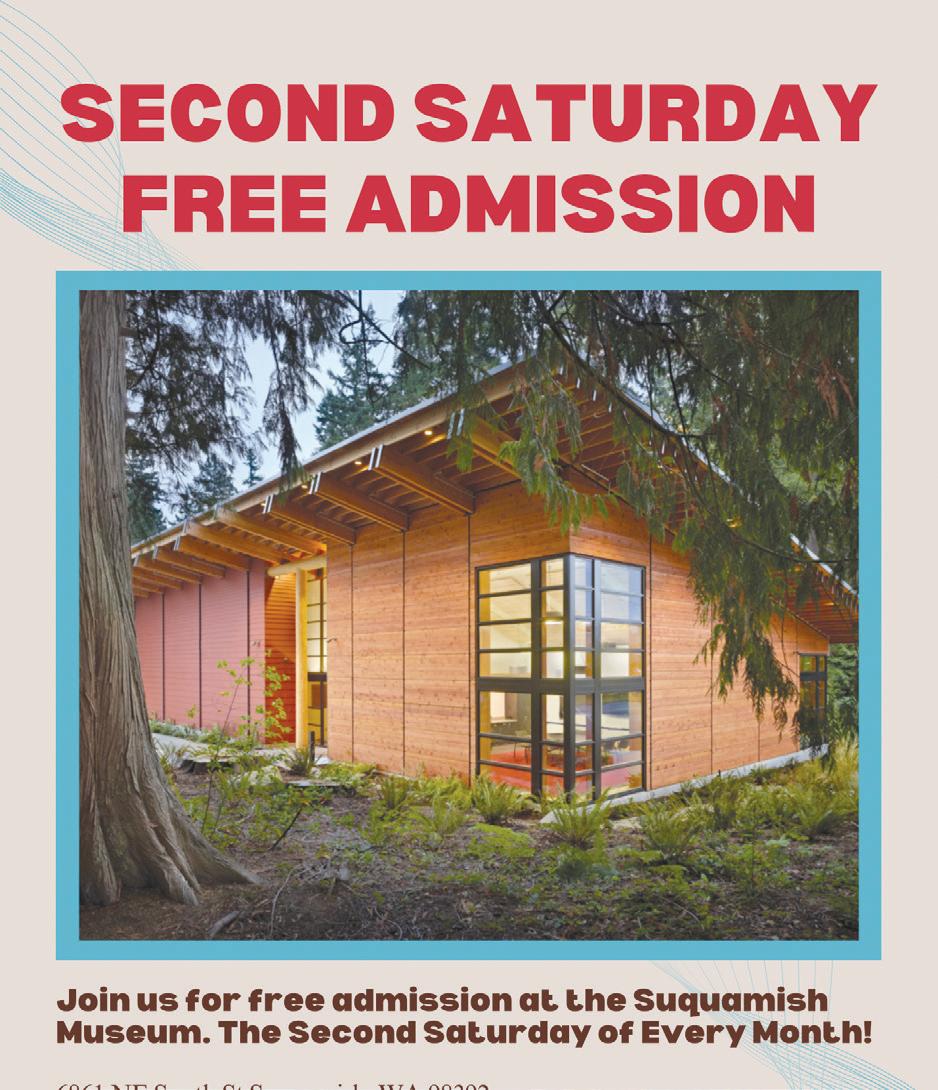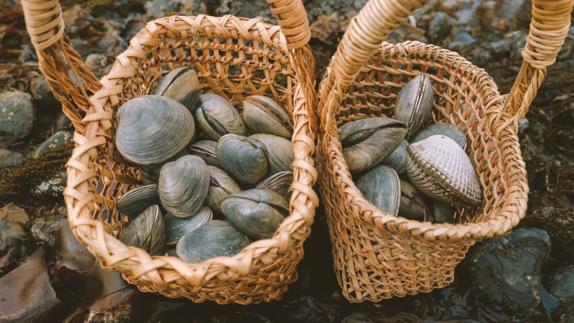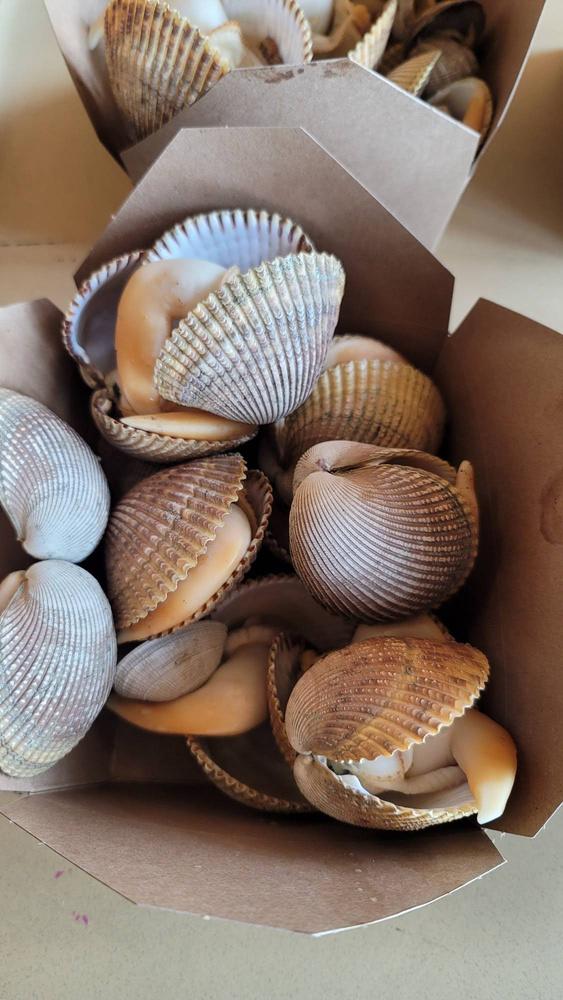





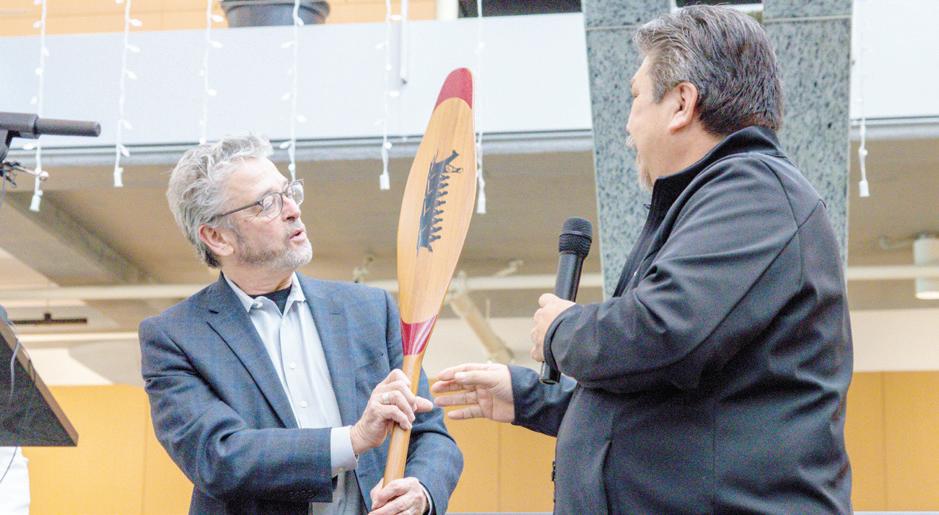

Suquamish Tribal Council meets Feb. 3 & 20. Agenda and links sent via SUN Weekly Update & text.
Suquamish Tribal Gaming Commission meets Feb. 4 & 18, 10am at Suquamish Museum. Call Angela Brainerd at (360) 394-8652 for details.
Suquamish Warriors meets Feb. 4 at 5:30pm at the Warriors Vet Center.
Suquamish Seafoods Board meets Feb.11. Call Shanel Carlson at (360) 394-8512 for details.
PME Board meets Feb. 12. Contact Emily Sato at emilysato@clearwater casino.com for details.
Suquamish Museum Board meets Feb. 20, 10am-noon at Museum. For info call (360) 394-8499.
Elders Council meets Feb.18 , 2-4pm at Elders Lodge. Call (360) 394-8417 for details.
Teen Dating Violence Awareness Month - see p 7 for events.
Time to Gather at Kiana Lodge
March 6, 6-9pm
General Council, March 15 & 16.
Did you have a baby in 2024?

Recovery Meetings. All are welcome to recovery meetings, held Mon-Fri, 6pm at the Wellness Center.

We want to see pictures! Please send 1-3 photos with full name, date of birth, parents’ and grandparents’ names. We’ll print them in the Suquamish News and showcase them during General Council. Email to communications@Suquamish. nsn.us. Thank you!
Published monthly by the Suquamish Tribe: 18490 Suquamish Way, Suquamish, WA 98392
Email us at: communications@suquamish.nsn.us Send letters to: Suquamish News Editor, PO Box 498, Suquamish, WA 98392-0498
Letters should include the writer’s full name, address, and telephone number and may be edited for clarity and space.
All photo submissions must be made in JPG or PDF form, with resolution of 300 dpi or more.

FISH WAR is a feature-length documentary that follows the tribes’ fight to exercise their treaty-reserved fishing rights. A landmark court case in 1974 would affirm the tribes’ treaty rights and establish them as co-managers of the resource, but the fate of salmon in the Pacific Northwest still hangs in the balance. roxybremerton.org
Suq uamish Museum
Museum
Events
January
Feb 1 Sat, 10am - 2pm. Cedar Woven Hearts Workshop with Kippie Joe
Feb 8 Sat, all day. FREE Museum Admission
Feb 8 Sat, 1pm. Heaven on the Half Shell: WA State’s Oyster Odyssey Public discussion with David Gordon. FREE!
Feb 12 - 14 Wed - Fri, 9am4pm. FREE! Bee my Valentine Card Making
Feb 16 Sun, 10am - 1pm. Beading Workshop with Jo Citlali
More info: SuquamishMuseum.org
Suquamish Museum opens its new exhibit honoring weaver and teacher Virginia Adams.
Leonard Forsman Chairman
Josh Bagley Vice-Chair
Irene Carper Secretary
Denita Holmes Treasurer
Lorilee Morsette Member
Azure Boure Member
Luther Mills, Jr. Member
Leonard Forsman Editor-in-Chief
Catherine Edwards Executive Editor
Jon Anderson News Editor
JoAnn Joe Photography/Design
Georgia Browne Layout and Design
Editorial Policy
Publishers of the Suquamish News reserve the right to refuse publication of letters to the editor and guest editorials. Submission of editorials and letters is encouraged. However, they represent the opinion of the author and not necessarily that of the Suquamish Tribe. As such, we reserve the right to refuse to print any letter, for any reason.
Reproduction of Suquamish News, in whole or in part, without written permission from the Suquamish Tribe is strictly prohibited.
The Suquamish Tribe awarded $13,000 checks to six nonprofits to support initiatives providing food access and human services to vulnerable communities across Kitsap County and Mason County. Nonprofit leaders were presented with checks at the first Suquamish Tribal Council meeting of the year on Jan 13.
In a separate event in Port Orchard, tribal leaders presented a $10,000 check to the Backpacks for Kids program, funding 1,800 backpacks filled with food for students in the South Kitsap School District.
“We are profoundly grateful to the Suquamish Tribe for their generous contribution to Backpacks for Kids,” said program founder Tish VanRavenhorst.
“This vital support comes at a time when we are rebuilding from a devastating crisis, and it will have a lasting impact on families in the South Kitsap community who are facing food insecurity. Together, we are ensuring that students in our area have access to the food they need to thrive, and we are reminded of the strength and generosity of community partnerships.”
Chairman Leonard Forsman expressed his appreciation for all the organizations’ dedication to the region.
“Kitsap County is within our ancestral homelands, and through our contributions we hope to ensure that families across the region have access to the essential resources they need to thrive,” Forsman. “Programs like Backpacks for Kids promote the well-being of the entire community, which is a principle we uphold among our traditional tribal values.”
The organizations who received donations during Tribal Council’s opening session of 2025 included The Salvation Army (Bremerton), ShareNet Food Bank (Kingston), Fishline (Poulsbo), Bremerton Foodline (Bremerton), South Kitsap Helpline (Port Orchard), and North Mason Food Bank (Belfair).
“We are honored to support organizations that tirelessly serve the most vulnerable members of our community,” said Forsman. “We are steadfast in our commitment to collaborating with partners
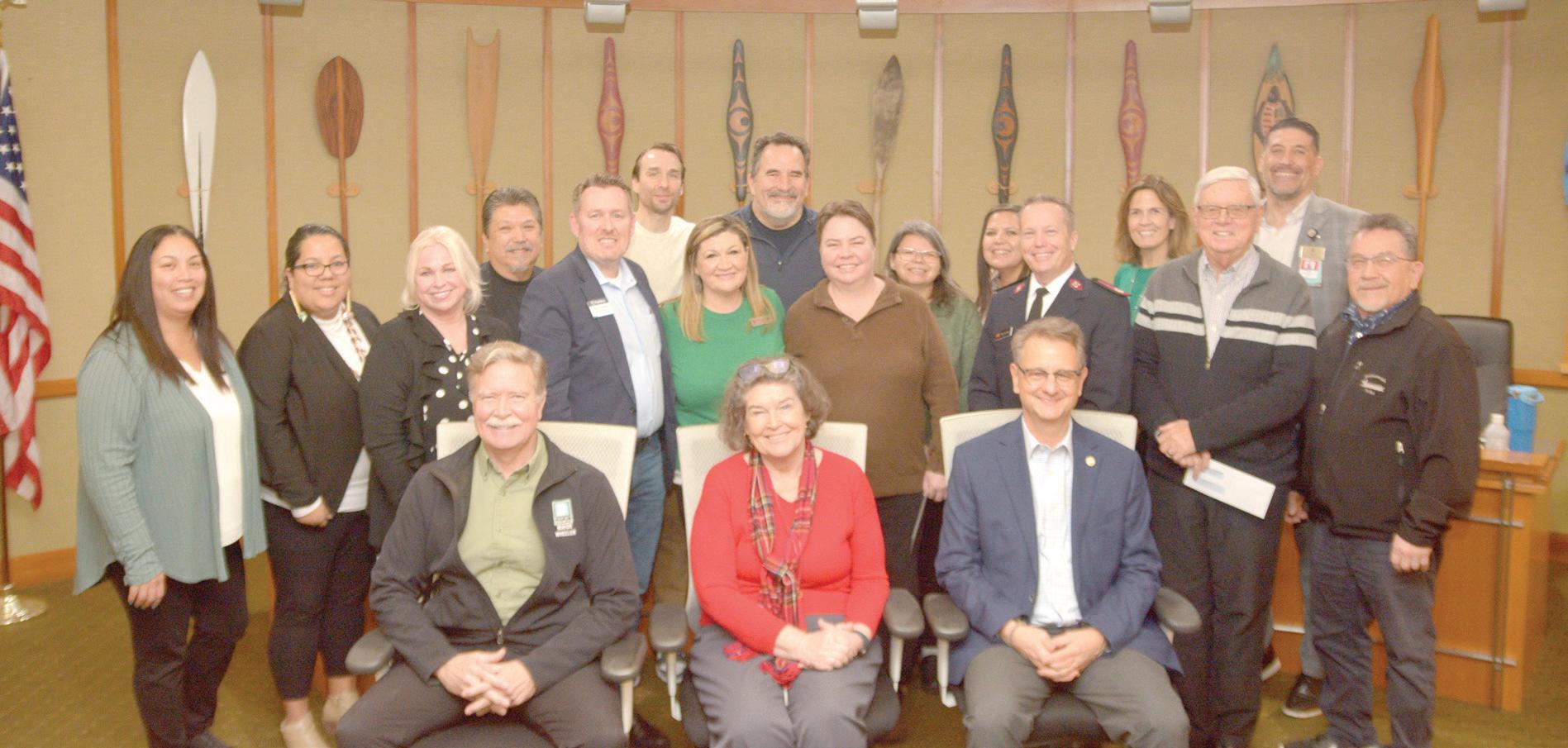
to foster a healthier and more vibrant future for everyone who now calls this region home.”
Council Treasurer Denita Holmes added, “This is a cultural principle of the Suquamish people. Our wealth isn’t measured by how much we have, it’s measured by how much we give away. And so, it’s important to have these relationships and connections, knowing we’re in a great place to do this hard work.”
Also in attendance at the event were Poulsbo Mayor Becky Erickson, Bremerton Mayor Greg Wheeler, and Port Orchard Mayor Rob Putaansuu, with whom the Suquamish Tribe and its economic arm, Port Madison Enterprises, work with on a regular basis to address societal needs across the tribe’s ancestral homelands of Kitsap County.
“I’m incredibly grateful for the Suquamish Tribe’s investment for those in need of food in our community,” said Port Orchard Mayor Rob Putaansuu. “Meeting this basic need is vital because no one should go hungry.”
The Suquamish Tribe’s donations are funded through revenue generated by its economic arm, Port Madison Enterprises, which manages the donations through its PME Fund.
“We are dedicated to enhancing the lives of Suquamish citizens and our neighbors by supporting worthy programs in the region,” said Greg George, Board President of Port Madison Enterprises.
“We want to show our appreciation to these six organizations for their dedication to our community by helping them begin the New Year with the resources they need to continue their vital work.”
Port Madison Enterprises’s donation program has allowed the Suquamish Tribe to contribute to various social service organizations, including a $50,000 donation in May to the Bremerton Salvation Army to support housing for children and adults.
“The Salvation Army is incredibly humbled and honored to receive this generous financial gift from the Suquamish Tribal Council,’ said Captain Dana Walters, The Salvation Army Bremerton Corps.
“The funds will help The Salvation Army provide assistance for individuals and families struggling to make ends meet, emergency shelter and food to our neighbors, and create a space where hope can be found. On behalf of all of us at The Salvation Army, thank you!”
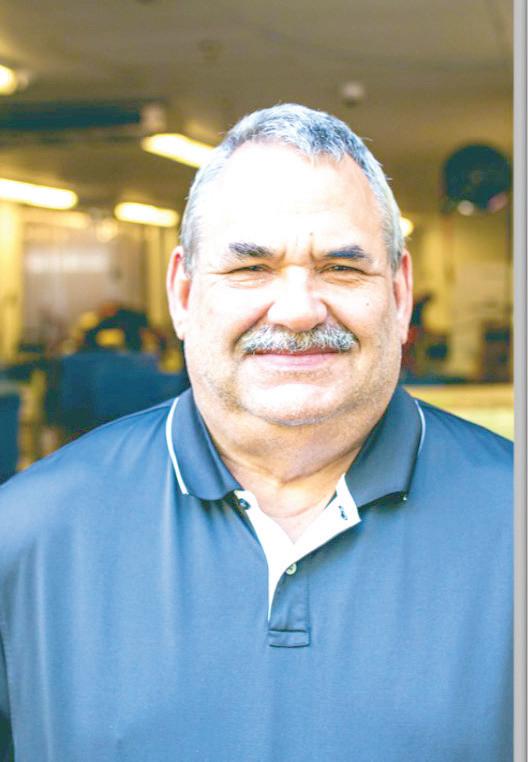
Longtime Suquamish
Seafoods General Manager Tony Forsman was honored in a private retirement ceremony recently, marking the close of a remarkable 46-year career in service to his tribe that also included leadership roles as Executive Director of tribal government, head of the Fisheries Department, a term on Tribal Council, among many others. During his 11-year tenure at Seafoods, Forsman led transformative efforts. That included the construction of a new processing and distribution plant in 2015, adding oyster and geoduck aquaculture initiatives to Seafoods’ portfolio, and guiding the custom-built dive boat F/V Carriere into the tribe’s fleet.
He also introduced retail sales at the plant, and then expanded on that success with a standalone store now known for the freshest seafood in the area. Meanwhile, Forsman had to navigate the international storms that came with tariffs and then the pandemic. Most recently, he began Seafoods’ transition into a fully independent tribal enterprise.
As Forsman retires, however, his legacy is not only in the tangible developments he oversaw but also in the strengthened community bonds and representation he championed. More than just a list of accomplishments, Forsman’s work across his entire time in government will perhaps be most remembered for how he treated people.
“When Tony first started as general manager, we had gone through several GMs who didn’t understand the divers’ needs,” says Tribal Council Vice Chair Josh Bagley recalling his days as a tribal diver for Suquamish Seafoods. “But Tony was different. He worked hard to understand where we were coming from. He listened to us and helped give the divers a voice.”
Behind the scenes, Forsman worked hard to build a collaborative relationship with the Seafoods Board of Directors and Tribal Council while growing operations and mentoring his staff.
“Tony took us into a new era of retail sales, expanding aquaculture, and so much more, but he was also an incredible mentor to many of us,” says Jim Boure, who worked for Forsman for more than a decade. “He had a way of bringing people along and sharing his experience. He really fostered a family atmosphere here, and prepared tribal members, especially, for leadership roles.
It’s a leadership legacy Boure says he will try to emulate as the new General Manager of Suquamish Seafoods. It’s a legacy of innovation, resilience, and a deep commitment to the community, says Boure, that sets a strong foundation for the Seafoods team to continue building upon.
“The place is a lot different – bigger and better –than when he got it. I am grateful for his leadership and mentorship,” says Boure, “and I look forward to carrying on his vision for Suquamish Seafoods.”
By Jon Anderson
Tribe leaders and government staff gathered to honor the work of Sarah van Gelder, who retired Jan. 10 as Communications Manager, closing out six years of service to the tribe. This was just the latest chapter, however, in her story as a friend and ally to the Suquamish people spanning more than two decades.
Van Gelder’s journey with the tribe first began in 2001, shortly after moving to Suquamish. It was during a challenging period marked by discrimination against the Suquamish people on their own reservation, including the desecration of Chief Seattle’s grave. At the time, the tribe was working to build what would eventually become known as the Wee Wun housing development in the face of opposition from pockets of non-Native property owners.
A grassroots organizer, van Gelder co-founded
the Olalla Neighbors, an alliance of like-minded residents who helped rally community support for the development. In the following years, in coordination with tribal leaders, she continued to organize community volunteers at Chief Seattle Days, hosting visiting canoe families during Tribal Journey, and played a key role in helping return Old Man House Park from state control back to the tribe.
During her retirement send-off, Tribal Chairman Leonard Forsman commended her courage and determination. “Back in the early 2000s, it was the beginning of our cultural resurgence as a tribe,” said Forsman. There were difficulties of the desecration and getting Old Man House back, the returning of the canoes, hosting tribal journey in ’09, they’re all crucial parts of our history, and we’re just so proud you would be part of it all and
support us like you did.”
Serving as the tribe’s communications director since early 2019, Forsman and tribal leaders credited van Gelder with leading efforts to:
• Bring new forms of communication, including SUN text alerts, the Weekly Update newsletter, and a series of online forums for tribal members to learn more about their government.
• Help the tribal community stay informed and connected throughout of the pandemic.
• Spotlight Tribal Council members and other leaders, bring greater visibility, by assisting with op-eds in local and regional newspapers, media interviews, and speaking engagements.
“You always advocated for the importance of
A new exhibit, Gifts from šəqhəblu: Traditional Weaving by Virginia Adams, is now open at the Suquamish Museum, celebrating the life and artistry of Virginia Adams (šəqhəblu). Known as a cornerstone in the revival of Southern Salish wool weaving, Adams’ work not only reflects deep cultural roots but also embodies her generous spirit and commitment to teaching.
Born Sept. 27, 1970, Adams was a member of the Suquamish Tribe. Her weaving journey began in the 1990s after observing Bruce Miller, a weaver from the Skokomish Tribe. Though self-taught, her natural talent blossomed into mastery, bridging traditional techniques with her unique creative signature.
Adams’ artistry stands out for its fine yarns, intricate details, and thoughtful use of color. Her works —often displayed at powwows, community gatherings, and cultural ceremonies — became symbols of Suquamish resilience and identity.
By the time she passed in 2018, Adams had become known through the region not only as gifted weaver, but also an inspiring teacher.
“We are thrilled to host this amazing collection of work by one of our own most cherished and generous weavers,” says Suquamish Museum Director Lisa Jackson, who is one of many who count themselves honored to have studied under Adams.
“I had many teachers growing up. Virginia was my consistent teacher. Always offering up her free
continued from p4
our name getting out there and promoting our way of life and values,” said Forsman. “We didn’t always know if it would make a difference, but you pushed us —and it did.”
“Sarah encouraged us to tell our stories in our own voices,” said Councilmember Jay Mills. “She showed us the importance of speaking from the heart.”
Communication staffer JoAnn Joe shared how van Gelder “pushed me to grow, even when maybe I thought I didn’t want to. Your encouragement and care made all the difference.”

time, her living room and office space to show me what she was working on and how to do her techniques,” says Suquamish Cultural Activities Coordinator and now weaver teacher Denita Holmes. “It was a true honor to be taught by her.”
Danielle Morsette, who apprenticed under Adams in 2008, says Adams “revived the wool weaving tradition at a time when only a small group of women practiced it, leaving an indelible mark on our community.”
Now an internationally acclaimed weaver in her
As van Gelder bids farewell, her legacy of empowerment and advocacy endures. Indeed, in a fitting bookend to her career, two of her last major projects has been assisting tribal leadership with the creation of a new series of interpretive boards that will soon be permanently displayed at Old Man House Park and Colman Dock in Seattle.
“Even with her departure, her good work here will continue holding up a mirror to the beauty of the Suquamish people, their culture, and contributions, for all the world to see,” commented Communications colleague Jon Anderson.
Though retiring, van Gelder says that she will remain connected, continuing her involvement
own right, Morsette credits Adams as a mentor and cultural link, describing her as “a gracious teacher, always willing to share her knowledge, and always open to learning from others.”
Adams’ humility and encouragement empowered Morsette to evolve her own weaving style, which she now passes on to new generations. “Virginia embraced the idea of living culture — rooted in tradition but constantly growing,” says Morsette.
The exhibit’s title, Gifts from šəqhəblu, reflects Adams’ habit of weaving as an act of love. Many pieces on display, including a baby blanket gifted to Morsette’s son, were crafted for family and community members.
“She showed her gratitude and love by creating regalia and gifts,” says Morsette. “It was her way of connecting and giving back.”
Visitors to the exhibit can expect to see a curated collection of Adams’ weavings, including personal pieces on loan to the Museum by students and family members. Among them is the baby blanket that showcases her delicate technique and dedication. The exhibit also highlights her legacy as a teacher who inspired a new generation of weavers, ensuring the survival of Salish textile traditions.
The Suquamish Museum invites everyone to come honor the life and see the work of šəqhəblu, a woman whose hands and heart strengthened the cultural fabric of her people.
By Jon Anderson
on the Board of the Suquamish Foundation, as a proud puller with the Suquamish Canoe Family, and volunteering at Chief Seattle Days and other cultural events.
“It’s been the honor of a lifetime to work with this incredible community,” she said. “I’m grateful for every moment.”
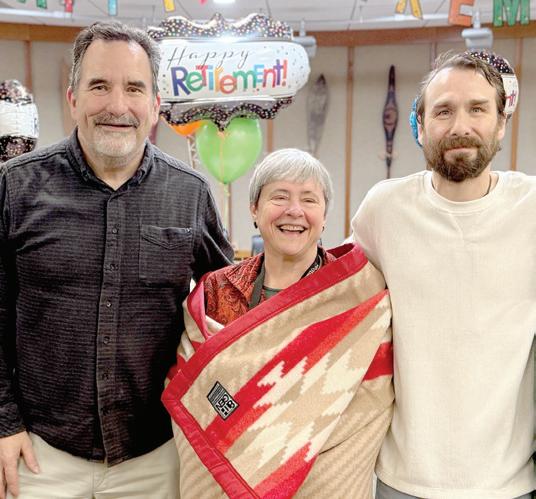
By Jon Anderson
OnAug. 17, 2004, Old Man House Park was returned to the Suquamish people. The following summer, tribal members, local officials, elected leaders, and State Park Commission staff and board members gathered at the park to see the title to the park turned over to the tribe. After a joyous celebration, tribal members took the deed by canoe to the Tribal Center on Sandy Hook Road for more celebration.
Twenty years later, interpretive signs written by Leonard Forsman and government staff, and designed by the tribe’s Communications Department, with oversight and Lushootseed language supplied by the tribe’s Cultural Resources Department, are about to be installed. The signs will be located around the park, beginning at the highest point next to the Washington state commemorative plaque, and ending in a grove of trees at beach level.
The boards tell the story of Old Man House, the Suquamish village that replaced it, and the return of the eventual park to the Suquamish people after years of struggle. They also tell stories of the tribe’s thousands of years of history at that location prior to the building of the longhouse.
Old Man House was built by Chief Seattle’s father, Schweabe, and Chief Kitsap in the late 1790s. At 800 feet long or longer, it was the largest in the Puget Sound area, home to hundreds of people, and the location for major cultural gatherings that drew people from throughout the region. It was also the home of Chief Seattle and his family.
Following the death of Chief Seattle in 1866, Indian Agent William DeShaw ordered the longhouse burned as part of an effort to end the traditional ways of life practiced by the Suquamish people. Tribal families rebuilt homes in the same area, including a church, school, and cemetery, and settled back into regular life.
In 1904, officials from the U.S. Military insisted on taking much of the Suquamish waterfront, including the Old Man House village area. Under enormous pressure, the Elders reluctantly agreed. This was at a time when the people were suffering from the absence of the children who had been forced to attend boarding schools. The result was that Suquamish families were scattered, many moving to their assigned land allotments or elsewhere.
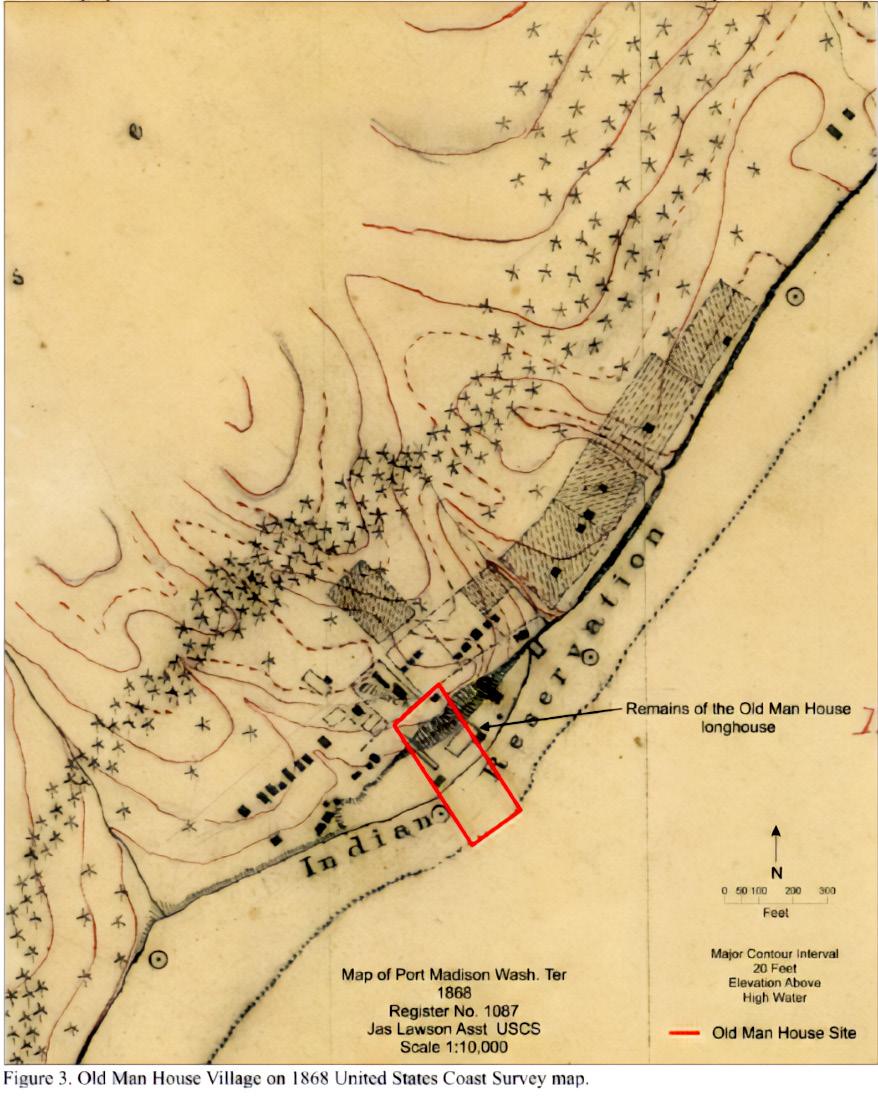
(Suquamish) in the language of this region, Lushootseed.
The waters in front of you are now known as Agate Pass. According to our ancestors, these waters were formed when the thunderbird fought the serpent who protected the creek bed that was once here.
In Chinook jargon, the popular trading language of this area, the large winter house here became known as O-Le-Man House, meaning “Old Man” House. The name of the people who live here and in other regional villages is Suquamish, meaning an alliance of people.
The interpretive text on the state of Washington plaque to your left provided some of the only publicly available information on the history of Suquamish Tribe before the opening of the Suquamish Museum.

The land was never used to create fortifications for the Bremerton shipyards. Instead, it was sold to developers who subdivided the land for vacation homes. The state purchased three of the lots in 1950 for a state park in recognition of the historic importance of the land.
And so it remained Old Man House State Park until the Suquamish Tribe and Suquamish Olalla Neighbors -- a local group that formed in response to the desecration of Chief Seattle’s grave -- collaborated in a statewide campaign to win the return of the park to the tribe. Support poured in from elected officials, civic and religious leaders, the editorial board of the Seattle Times, Kitsap County residents, and many others. Meanwhile, a small group of neighborhood residents, who had been opposing the tribe on many fronts, fought the return of the park.
The decision to return the land was made at a packed hearing of the Washington State Parks Commission in Port Angeles in August 2004. After dozens of speakers had their say, some in support,some in opposition, the room got very still. Many still remember the room erupting in ap-
plause and drumming and singing when the commission voted unanimously to return the park to the tribe..
In the months and years that followed, artifacts that had been unearthed earlier at Old Man House village, were returned to the Suquamish Tribe and housed at the newly completed Suquamish Museum.
In 2009, the tribe completed construction of the House of Awakened Culture, inspired by Old Man House, where local and regional gatherings are hosted. That year, the Suquamish Tribe hosted the Canoe Journey, with thousands of visitors converging on Suquamish for five days of songs, dances, speeches, and gift giving. And the tribe’s famously delicious feasts.
The building of the House of Awakened Culture was just one of the projects that made up a cultural resurgence that continues to this day.
The new interpretive signs at Old Man House Park will be installed in the coming months, offering tribal community members and visitors stories of the sacred history of this land.
By Sarah van Gelder
Feb campaign focuses on ending teen violence
Suquamish Integrated Victim Services is calling on the entire Suquamish community to help end teen dating violence with a message that everyone deserves healthy and safe relationships. With a series of events throughout February focused on education, prevention, and the power of Indigenous love languages, SIVS will engage students, families, and the broader community through events and initiatives designed to inspire and inform.
Events will include:
• Feb. 11 – Wear Orange Day: Show your support by wearing orange! Participants can pick up T-shirts and enter a raffle. Details on obtaining shirts will be announced soon.
• Feb. 22 – Coastal Gathering: Join us for a shared meal and traditional coastal jams, a joyful event celebrating community and connection.
• Feb. 27 – Community Dinner & Bingo Night: Enjoy a free meal prepared with love and engage in family-friendly fun.
• All month – Social Media Sharing: Share your thoughts! What does Indigenous love language mean to you? Post your answer on Facebook, tagging @suquamishintegratedvictimservices, or email victimservices@ suquamish.nsn.us. Anonymous submissions will be shared to inspire others.
Teen dating violence is more common than many realize. National statistics reveal that one in three teens in the United States experiences physical, sexual, or emotional abuse by someone they are in a relationship with before adulthood.
“Education and prevention are vital to reducing this crisis,” said SIVS advocate Kylee Gingrey. “Our goal is to provide tools that foster understanding, respect, and safety among our youth.”
Among those tools, SIVS has created a new Guide to Teen Dating Violence Awareness. This age-appropriate resource addresses consent, recognizing abuse, and supporting friends in need.

Throughout the month, SIVS will also visit local schools, including Chief Kitsap Academy, Kingston Middle School, and Kingston High School, reaching over 300 Native students.
“The outreach aims to amplify Indigenous love languages and create a space where students feel seen, heard, and respected,” Old Coyote said.
Chairman Leonard Forsman commended the
initiative, stating, “Programs like this are critical to educating our youth and supporting healthy relationships within the community. Their work shows the strength and care we have for one another.”
For more information or to get involved, go to suquamish.nsn.us/teen-dating/
By Jon Anderson
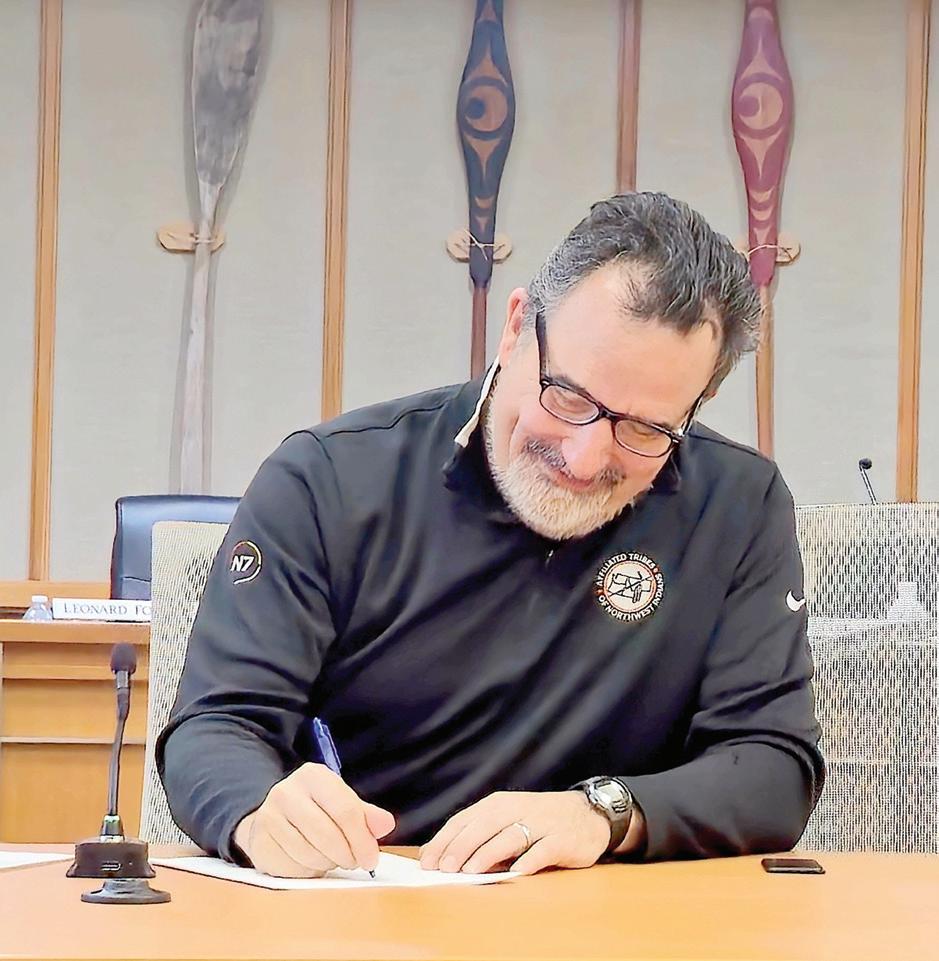
Welcome to 2025! The New Year started out with a flurry of activity, especially at the State Capitol as now-former Gov. Inslee left the Governor’s mansion after 12 years and Bob Ferguson came in to succeed him.
Inslee gave his final State of the State address to the legislature. There has been a lot of turnover in leadership as there always is during a gubernatorial transition. Longtime Governor’s Office of Indian Affairs Director Craig Bill (Swinomish) retired and was replaced by Tim Reynon (Puyallup) who was serving as the Tribal Liaison at the City of Seattle.
During his tenure, Craig was a good friend to the tribes and we wish him the best. We have gotten to know Tim well in his work for Mayor Harrell and look forward to future collaboration with him in his new role.
There was a festive inaugural for Gov. Ferguson with a reception at the Governor’s Mansion and a ball in the State Capitol. The Squaxin Island Tribe opened the ceremony with a cultural presentation with their singers and dancers.
We also started some of our work with the state legislature. The Democrats have a strong majority; however, we continue to take a bipartisan approach to our engagement. We are seeking support from
the state to expand our health care system, while also providing comments on bills impacting Indian Country, especially in respect to tribal gaming.
We met with Rep. Chris Stearns (Navajo) to discuss a public safety bill that would address discrimination in sentencing of American Indians. We also met with a team of legislators to hear the framework of a road-usage-fee bill that is intended to replace, or at least supplement, the gas tax transportation-funding model. The current gas tax model will not support transportation-funding needs as fuel consumption continues to decline with electric vehicles and better fuel efficiency.
We also testified before the Washington State Board of Natural Resources in their last meeting before the retirement of Hilary Franz, State Lands Commissioner. She was succeeded by Dave Upthegrove.
We voiced our support for a rule to ban commercial finfish net pen aquaculture in state-owned waters. The board passed the rule that will help protect our waters and our salmon from the threat of commercial net pens.
Washington state also has a new Attorney General. Nick Brown previously served as a U.S. Attorney and an adviser to Gov. Inslee. I was asked to serve on his transition team. We look forward to continued partnerships with Nick who is well acquainted with the Suquamish Tribe.
The Suquamish Tribal Council traveled to the Port of Seattle Headquarters at Pier 69 on Elliott Bay to jointly sign a Memorandum of Understanding that outlines our government-to-government relationship and communication protocols. The ceremony featured a traditional song by our canoe family and an exchange of gifts. Words by the elected officials referenced the long relationship between the Port and the Suquamish Tribe.
Another MOU, this one with the U.S. Navy, was jointly signed in a virtual ceremony conducted in our Council Chambers and the Pentagon. This MOU outlines a consultation process between the Suquamish Tribe and the Navy on the Bremerton Waterfront Infrastructure Improvements at the Puget Sound Naval Shipyard (PSNS). We appreciate the efforts of Assistant Secretary Meredith Berger and the other Navy leadership to develop
this document intended to appropriately mitigate impacts to treaty fishing and related activities in Sinclair Inlet caused by the operations and presence of the PSNS facility.
The two primary intertribal organizations, National Congress of American Indians (NCAI) and Affiliated Tribes of Northwest Indians (ATNI), are planning their winter conferences. NCAI holds their Executive Council meeting in Washington, DC in mid-February and ATNI holds their meeting Portland, Oregon.
As ATNI President I serve on the Executive Boards of both organizations and we have been meeting to plan each organization’s convention. Both organizations will work on developing strategies for engaging with the new federal administration.
The Tribal Council held a Chief Kitsap Academy School Board meeting at the Old Tribal Center on Sandy Hook Road. Teachers and administrators presented challenges and opportunities they have in educating our students.
Attendance is often a challenge in student success. They have had success in establishing homework completion events.
Our internal committees meet frequently to manage our enterprises, develop policy, and make decisions regarding various programs.
Among them, the Culture Committee met to review and make suggestions regarding school curriculum and give direction to the North Kitsap School District on a process to develop art at the new Suquamish Elementary School gym.
The University of Washington Board of Regents held their monthly meeting on the Seattle campus. We received reports from the President and the Provost and a report on admissions. Native American enrollment still remains flat at the main campus.
I am working with administration to find ways to improve our recruitment and retention. We also received a presentation from two student athletes who talked about how they are adjusting to the travel demands caused by the admission of the UW into the Big Ten conference.
The Department of Justice held a gathering of tribal representatives in downtown Seattle who are recipients of the Coordinated Tribal Assistance Solicitation grants.
These funds help fund public safety programs for tribal courts, police and other justice programs including domestic violence victim support. I was asked to welcome the group of over 300 people on behalf of the Suquamish Tribe.
I also joined Tribal Council and staff to congratulate Sarah Van Gelder on her retirement from tribal employment. Sarah has served us well as director of our Communications Department, helping the program grow and become more sophisticated.
Sarah has had a longtime relationship with the Suquamish Tribe, helping us in efforts to return the Old Man House Park to the tribe and as a member of the Suquamish Canoe Family. We wish her all the best.
By Leonard Forsman Suquamish Tribe Chairman
Tribal Council meets Feb. 3 & 20


Discounted room rates are available for tribal members traveling from outside Kitsap County. Use room block #24945 when making your reservation. Save the Dates
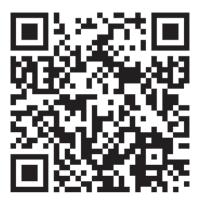
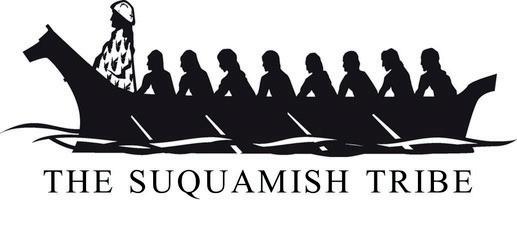
General Council will be held on Saturday, March 15 and Sunday, March 16 at Kiana Lodge.
On Sunday, nominations from the floor will be accepted. There will be a primary if there are more than two candidates for any position. On the ballot will be two Tribal Council positions:
• Position #2, Vice-Chairman, currently held by Joshua Bagley
• Position #3, Treasurer, currently held by Denita Holmes
There will be reports from tribal leaders, department heads, and PME, and time to reconnect with other tribal members.
For out-of-town tribal members wishing to stay at the Clearwater Casino Resort during General Council, discounted rooms can be reserved by calling (866) 609-8700 and asking for Suquamish Tribe General Council 2025 Block 24945.
Candidates for Tribal Council positions 2 and 3 are invited to submit a statement and photo to be published in the March edition of the Suquamish News. Send to communications@suquamish.nsn.us or drop them off at the front desk of the Administration Building by February 15, 2025, attention “Communications Department.” Candidate statements and photos are optional.
Suquamish Tribal Council is seeking tribal members interested in helping shape the future of the tribe’s fishing and hunting management by filling a vacancy on the Fish & Wildlife Committee. This two-year appointment offers tribal fishers, shellfish harvesters, and hunters a chance to make an impact on policies and practices that sustain our natural resources. Interested members can reach out to Amanda Carper at acarper@suquamish.nsn.us.


If you cannot walk away when you’ve reached your limit, or if you find yourself preoccupied with thoughts of gambling or in conflict with others because of your gambling activity, we can help.

Contact the Suquamish Tribe Wellness Center at (360) 394-7139 or (360) 3948558. We are here for you.
is



Daybreak Star Radio is hosting its first annual Winter Indigenous Film Showcase, a week-long Indigenous storytelling celebration running Feb. 16-22 in Seattle.
This free-to-attend event at the Daybreak Star Indian Cultural Center will feature a lineup of films billed to “amplify the voices of Indigenous filmmakers and showcase their creativity, culture, and resilience,” say organizers.
The festival includes a mix of feature films, short films, and documentaries highlighting both emerging and established Indigenous filmmakers. Featured films include:
• Bring Them Home, narrated by Lily Gladstone
• Hey! Viktor, starring Cody Lightning
• Muru (The Raid), starring Cliff Curtis
• Fish War
• Imagining the Indian
• The Knowing
• Indian Road Trip
• Many Short films, including Janelle Niles: Inconvenient
In addition to screenings, the showcase will host in-person and virtual Q&A sessions with many of the filmmakers, offering audiences a unique opportunity to hear the stories behind the films and connect with the artists.
“This showcase is about honoring Indigenous voices and creating a platform where their stories can inspire, educate, and connect us all,” says Sherry Steele, Station Manager at Daybreak Star Radio.
For the full schedule and more details, visit www.daybreakstarradio.com/filmshowcase.


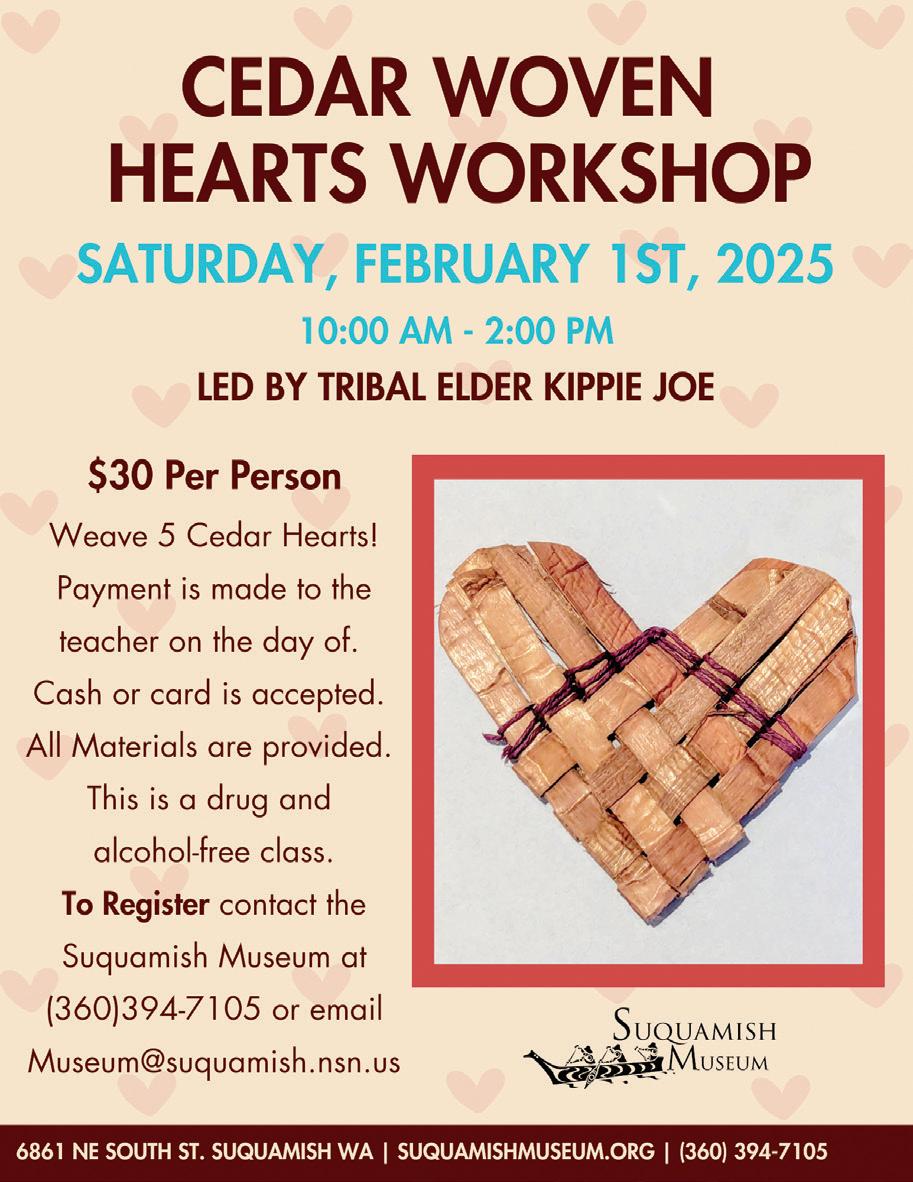
The Suquamish Tribe signed two separate agreements in January, the first with Port of Seattle and other with the U.S. Navy.
Both agreements underscore the tribe’s sovereignty and the importance of developing healthy government-to-government relationships, collaborating in areas of mutual interest while also respecting treaty obligations.
In a Jan. 8 ceremony, Tribal Council joined with Port of Seattle officials at the Port Headquarters on Pier 69 to sign a memorandum of agreement designed to codify communications for longrange planning and memorialize shared benefits in Elliott Bay, the Duwamish River, and Puget Sound. The ceremony also featured the sharing of a traditional song by Suquamish Song & Dance and an exchange of gifts between tribal leaders and port officials.
“This agreement lays a blueprint for present and future work with the Port of Seattle,” Suquamish Tribe Chairman Leonard Forsman told those gathered. “In some ways, this is just documenting things that we’re already doing. But people and positions change, and sometimes in-
stitutional memory fades. We want to make sure this agreement will guide us and educate future stakeholders.”
Forsman noted the Suquamish Tribe’s ancestral leader Chief Seattle once expressed his concern for the future of the world. “I see that concern today,” said Forsman. “We are marine people. The waters and natural resources behind us are integral to our culture, spirituality, and way of life. This agreement ensures these resources are protected for future generations.”
The 1855 Treaty of Point Elliott, signed by Chief Seattle and ratified by the U.S. Congress, enshrines the Suquamish Tribe’s sovereignty and right to self-determination as a government and a people.
“This agreement builds upon that foundation by underscoring the critical importance of early, meaningful consultation on projects that impact our ancestral waters and lands,” Forsman said.
The agreement “recognizes the Suquamish Tribe’s deep historic and cultural ties to shorelines and aquatic areas since time immemorial,” said Port Commission President Toshiko Hasegawa.
“It further recognizes the land and waterways that are shared resources with rights and interests critical to the Suquamish and the Port of Seattle. This agreement creates an important framework for cooperation and collaboration for these shared interests that not only recognizes the Tribe’s sovereignty but will benefit the entire region around our shared goals of equity and environmental justice.”
Meanwhile, in a separate ceremony Jan. 16, held jointly over video in Suquamish Tribal Council Chambers and the Pentagon, tribal leaders and U.S. Navy officials sealed an agreement to improve government-to-government consultation and help defray the impact of planned improvements at the Puget Sound Naval Shipyard.
“We appreciate the efforts of Assistant Secretary Meredith Berger and the other Navy leadership to develop this document intended to appropriately mitigate impacts to treaty fishing and related activities in Sinclair Inlet caused by the operations and presence of the PSNS facility,” said Forsman. By Jon Anderson


Indian
(meat,
The New Year got off on the right foot, you might say, with a fantastic Friday Foot Care in January. If you haven’t had a chance to give your feet a little extra TLC, why not make signing up for an upcoming foot care day one of your New Year’s resolutions?
Speaking of great goals, come join the fun at Elders Chair Volleyball and Fitness classes, now back in action every Tuesday and Thursday at the Fitness Center.
Elders Council held their first session of the year on Jan. 22, getting down to work preparing for General Council, which is just around the corner! There is a lot planning now underway for another all Tribal Elders gathering to start things off as our people come together again in March. Elders Council also got a report from Police Chief Mark Williams who introduced some of his new officers who are now working so hard to “serve and protect” on our reservation. Thank you for the work you do to keep us safe, our hands are up to you!
We’ll be back next month to catch up on everything else that’s been going on. Until then… Happy trails until we meet again!
By Della Crowell and Melissa Lund Elders Program
Trudel, Taylor Harriman, and I went to Rat Island with representatives from Port Gamble S’Klallam Tribe, Jamestown S’Klallam Tribe, and U.S. Fish and Wildlife, to inspect damage done by recent king tides. There were several areas where the tides damaged sacred places and we worked very hard to make sure that these areas were protected again.
We had our Spiritual Leader, Gene Jones Sr, and many hands carefully working to tend to these sites. We had to leave just before 1pm as the wind began to pick up, so the boats could safely bring us back to the parking area. We all agreed to return again in the spring to do some planting and make sure the beach is better protected from extreme high tides. We also asked U.S. Fish and
Stephanie Marie Alexander
Sunrise: May 24, 1976
Sunset: Dec. 27, 2024
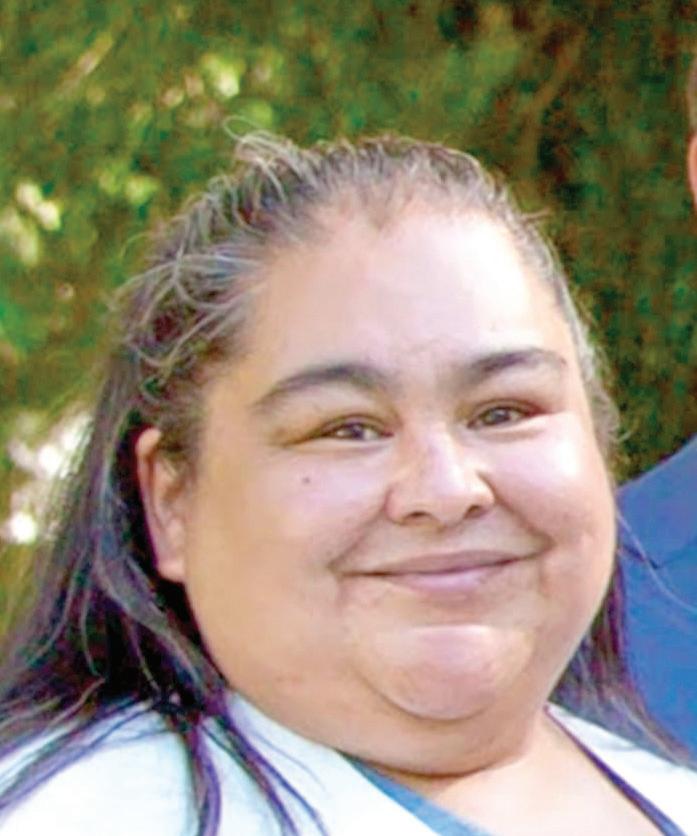
On Dec. 31, 2024, family, friends, and loved ones gathered at the House of Awakened Culture to say goodbye to Stephanie Alexander.
The following eulogy was offered in celebration of her life.
Welcome, thank you all for joining us. Today is the last day of December 2024. As the year comes to an end, we are gathered here to celebrate the life of one of the best flames amongst us. She was born Stephanie Marie Alexander, but too many of us here we know her as Chicola.
She was born May 24, 1976 in Bremerton, Washington to Mary Alexander & the late Robert Alexander Sr. She passed away on December 27, 2024.
Stephanie is survived by:
Her brothers and sisters; Robert Jr., Danielle, Grace, Bill (Char), Kevin (Kassia), Stephanie Reite, and Erik.
Wildlife and Washington state if the island could be closed to the public and keep it a sacred site only available to the tribes.
We welcomed the New Year by saying farewell to some dear ones that we will see again in the future. Our dear colleague, the tribe’s former Archaeologist Dennis Lewarch, who retired last year, passed on Dec 11. His laugh, smile, jokes will be missed by all of us greatly, but the knowledge he uncovered and shared with us about our history will live on. We hope to keep his legacy going.
Miss Stephanie Alexander, my beautiful right hand, will also be missed. She was bright and knowledgeable about our tribal culture and history. She spoke so strongly in the Suquamish Museum when doing tours and showing how to
Her nieces and nephews; Robert III, Nick, Grace and Christian Rodriguez, River, Ricky, Joseph, Ethan, Rosealynn, and Kylie.
Her great nephew Robert IV and great niece Savannah.
When you first walk up to Chicola the first words out of her mouth would be “Long Time, No See.” At first, this seems to be a simple phrase but after some reflection one can see that it is sort of insightful to how she thought about life.
To Chicola, life was too precious to hold grudges, too short to not speak your mind, too wonderful to not enjoy to the fullest.
“Long Time, No See” under this light is a reminder to each of us that there is no time like the present to see loved ones, to be there for our friends and family, and to light up the room with our smiles.
To many of us we knew Chicola as the life of the party. She brightened every room. She got along with everyone and would have conversations with complete strangers. And they wouldn’t be strangers for long.
Chicola could brighten your day with her smile and jokes, but beyond this was her ability to better our lives. She didn’t hesitate when it came to her family, and she opened her heart and home to anyone or any family member in need.
Long Time, No See.
make paper mats. She loved working there and teaching the children. I would spend so many hours with her working on the oral histories, and laughing at the stories when we would go on trainings together.
Both of these people will not forgotten. They are going to blessings and will live on forever in my heart. As I was at Stephanie’s’ Celebration of Life on Dec. 31, I was grateful to the many folks told me to preserve my own stories. I’ve asked for someone to come and help me do that, as I too need to be interviewed. I would love to tell my stories and have them saved for others to hear in the future.
It’s not just Elders who should consider being interviewed. Adults and even our youth have stories to tell, stories that won’t be remembered so
2025 will be a hard year for many of us. We will be going through it without our best friend, without our favorite sister, without our favorite aunt, or without one of our best daughters. It’s at this deep point of winter that we will need to lean on each other more and more in the coming new year.
We will need to emulate the best aspects of Chicola and remember how she would want us to celebrate the gift of life. She would want us to cherish our loved ones and be there for one another. Above all, though, Chicola would want us to go into 2025 and take advantage of all the happiness it has to offer. By doing this we don’t just honor her, we give her the chance to once again be the life of the party and the light into the New Year.
I know each and every person here has a different story they could tell that captures Chicola’s personality or the impact she had in your life. Chicola didn’t have the chance to say goodbye in person, so before you leave, we will have an open mic and encourage you to share these memories as we say farewell.
For those who would still like offer favorite memories or say goodbye to Stephanie, comments on her Facebook are welcome. Stephanie’s family would like to thank the Suquamish Tribe’s Human Services Department for their assistance, and all who helped in ways big and small, through this difficult time.
clearly when they are older. Those stories can be a gift to the future generations to know and understand, so they can learn what your lives were like growing up in Suquamish.
Think about how much just phones have changed in the last 20 years. Many of today’s youth do not know what a rotary dial phone is, or answering machines, party lines, pay phones, telephone booths, or what’s it’s like to make a collect call. And the changes keep coming.
To set up an appointment please call my cell phone at (360) 340-0206 or email me at mjones@ suquamish.nsn.us and we will find a date and time that is good for you.
By Marilyn Jones
Heritage Specialist
FREE for Suquamish Tribal Members and owners of reservation trust land.
Schedule an appointment to get your estate planning documents fully executed by Feb. 28 and be entered into a
for a chance to win a $300 gift card to Port Madison Enterprises. Gift cards are valid for use at any PME properties. To make an appointment, contact Shilene George at (360) 394-8501.
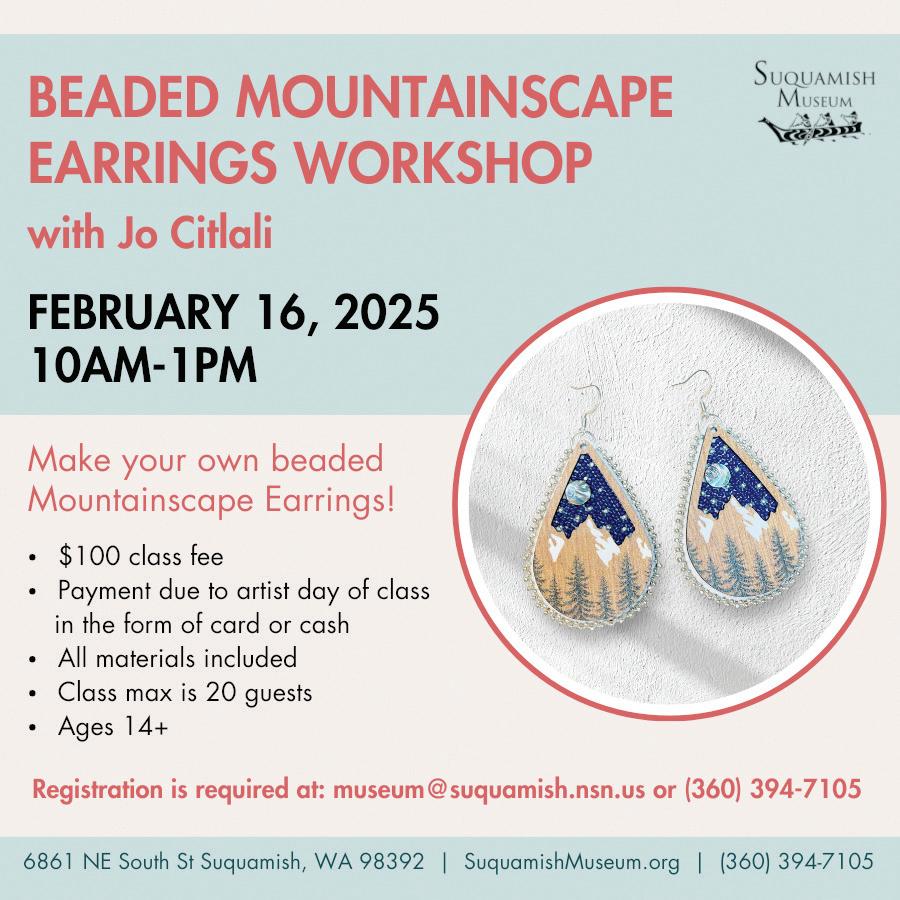

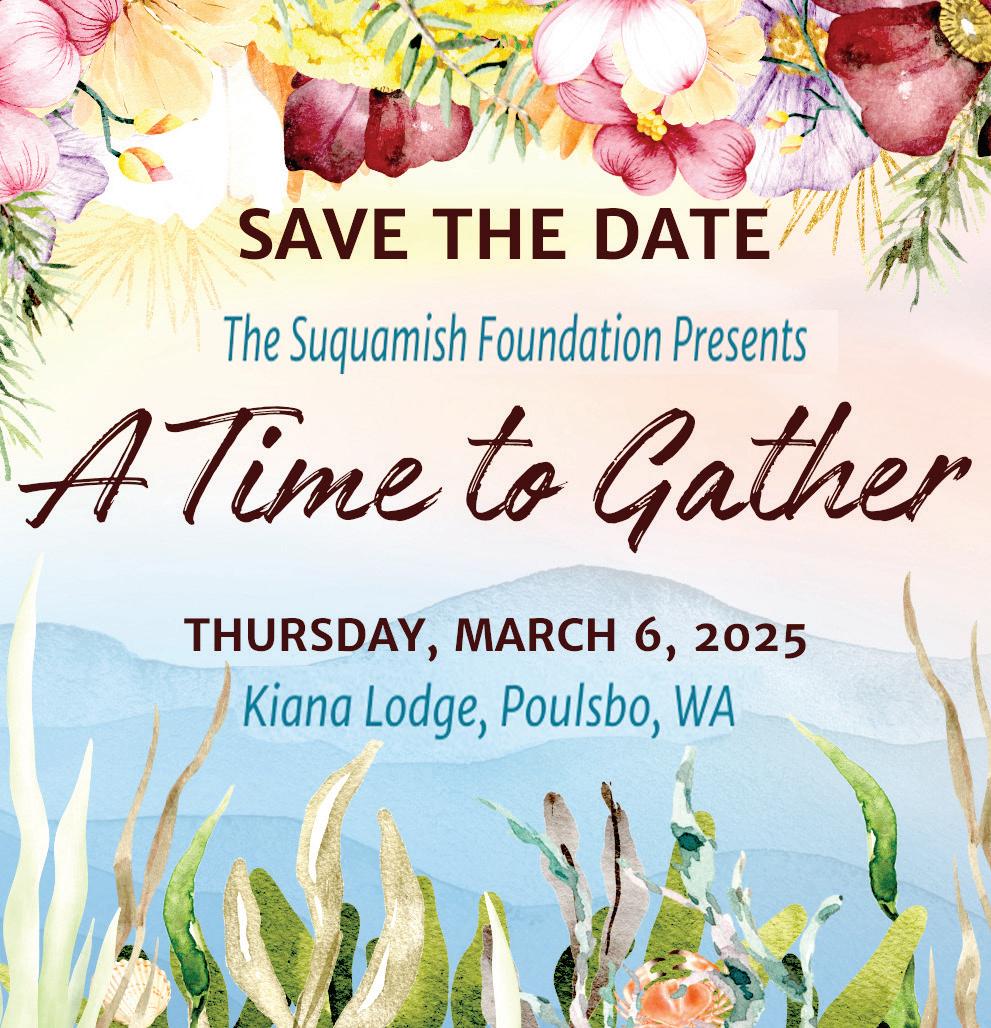

February 1
Adam Weber
Aiyana Brown
Sho-shyne Jones
February 2
Ardath Longway
Brenda Bowman
Charles Sigo
Connor Day
Cynthia Power
Dakotah Frederick
Dawn Nichols
William Webber
February 3
Barbara Lawrence
Douglas Crowell
Henry Hagen
Karrisa Jones
Layla Jackson-Wada
Mackenzie Foster
Olivia Phillips
Trisha Smith
February 4
Cheyenne Boyer
David Mills Jr.
February 5
Danielle Alexander
Marilyn Wandrey
Rebecca Peterson
February 6
Cameron Covarrubias
Carena Covarrubias
Freedom Mowitch
Steven Adams
February 7
Calina Lawrence
Devon Dillon
Mable Anderson
William Jackson
February 8
Golden Hawk Sr.
February 9
David Weber
Mataya George
Palmar Humphery
Savannah Peterson
February 10
Douglas Vogel
George Hill III
Gerald Adams
Ibrahim Ridani
John Mabe
Josue May
Kylie Cordero
Stephanie Neeley
February 11
Hailey Myers
Ha-kwa Hu Pai Stobsh
Chiquiti
Rebecca Purser
Rily Mcintosh III
Robert Adams
Todd Boyd Jr.
Tracy McMillan
We-Laka Chiquiti Sr.
February 12
David Mills Sr.
Steven Sanchez
February 13
Carilyn Patrick
Elise Louman
Robert Bird
Shellene Kurtz
Tanner Kumpf
February 14
Angela Hill
Betty Bagley
Connor Jackson
Shawna Belmont
Tina Zaiss
February 15
Lena Chavez
February 16
Gemma Doyle-Chiquiti
Kahteya McDonald
Leland Standley
Sincere Zahir
Skylene George

February 17
Diane Dozier
Mia Pezzanite
February 18
Brandy Boure
Candess Johnson
Dorian Hall
Nissa Dash
Patricia Medina
February 19
Jade Jefferson Jr.
John Lawrence Jr.
Kathleen Kinsey
Laree Miller
February 20
Kaynoni George-Mcgrady
Maximus Pearson
February 21
Ceyenna Cordero-Crow
Dawn Featherston
Donavan Charlie-Adams
Hazel Mabe
John Lindell
Jonathan George
Ka-el Williams
Shannon Iaconis
February 22
Craig Winnie
Ha-huli-tud Hawk
Max Gellert
Melvin Colomb
William Ross
February 23
Luther Mills Jr.
February 24
Adam Jackson
August Lusuegro
Benaiah Maroney
Gene Jones Jr.
Jennifer Rogers
Jose’ Martinez
KareemVollenweider
February 25
Marcus Mabe
Sea-Ots-Ton Jones
February 26
Crystal Purcell
Jackie Mills Demain
Kelsey Vollenweider
Lisa Henry
Michael Immken
Owen Midkiff
February 27
Alexis Matthews-Manley
Martha George-Sachava
Matthew Maroney
Rayne O’Brien
February 28
Carey Webster
Nevaeh Boure
February 29
Jenell Davis
